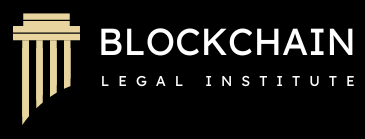Visit GBBC’s chart of projects on the blockchain that are focusing on sustainability issues.
Sustainability and blockchain are two significant areas of interest, and their intersection raises several legal issues that need careful consideration. Here are some key legal concerns to be aware of when dealing with the intersection of sustainability and blockchain:
- Regulatory Compliance: Blockchain projects in the sustainability sector need to navigate various regulatory frameworks, including environmental, data protection, and financial regulations. Depending on the jurisdiction, certain activities related to sustainability and blockchain might be subject to specific rules or licenses.
- Data Privacy and GDPR: Blockchain inherently stores data permanently and transparently, which can conflict with principles of data privacy, such as those outlined in the General Data Protection Regulation (GDPR) in the European Union. Ensuring that personal data is managed appropriately and that the principles of GDPR are followed is crucial.
- Smart Contracts and Legal Validity: Smart contracts are self-executing agreements on the blockchain. Ensuring the legal validity of these contracts and resolving disputes arising from them can be challenging, as traditional legal systems might not fully recognize them yet.
- Intellectual Property (IP) Rights: Issues related to IP rights can arise when blockchain projects involve the development of new technologies, algorithms, or innovative solutions. Clear agreements and licensing terms are necessary to protect the intellectual property of parties involved.
- Supply Chain Transparency: Blockchain can enhance supply chain transparency, allowing consumers to trace products back to their origins. However, this also raises questions about data accuracy, liability, and accountability throughout the supply chain.
- Carbon Footprint and Energy Consumption: Blockchain networks, especially public ones, can consume significant amounts of energy. This can raise concerns regarding the environmental impact and sustainability of blockchain technology itself, which might conflict with the sustainability goals of certain projects.
- Legal Identity and Digital Identity: Many sustainability initiatives aim to provide identity solutions for individuals in underserved areas. Establishing legal identity and ensuring that digital identity solutions comply with local laws and regulations is essential.
- Tokenization and Securities Laws: If blockchain projects involve the issuance of tokens, there’s a need to consider securities laws. Tokens that are classified as securities might be subject to specific regulations, including registration requirements.
- Liability and Accountability: Decentralized systems like blockchain can blur the lines of liability and accountability. When disputes or harms arise, determining responsibility and pursuing legal action can be complex.
- Cross-Border Transactions and Jurisdiction: Blockchain operates on a global scale, potentially leading to cross-border transactions and disputes. Determining the appropriate jurisdiction and applicable laws can be challenging.
- Environmental Regulations: Blockchain projects related to sustainability, such as carbon credit trading, need to align with relevant environmental regulations and standards to ensure their legitimacy and effectiveness.
- International Sanctions: If a blockchain project involves cross-border transactions, it’s important to ensure compliance with international sanctions and trade restrictions.
Navigating these legal issues requires a multidisciplinary approach involving legal experts, technologists, environmental specialists, and other relevant professionals. As the intersection of sustainability and blockchain continues to evolve, so will the legal considerations associated with it. It’s crucial to stay informed about the latest developments in both fields and adapt your approach accordingly. Check back frequently as this page is updated.
